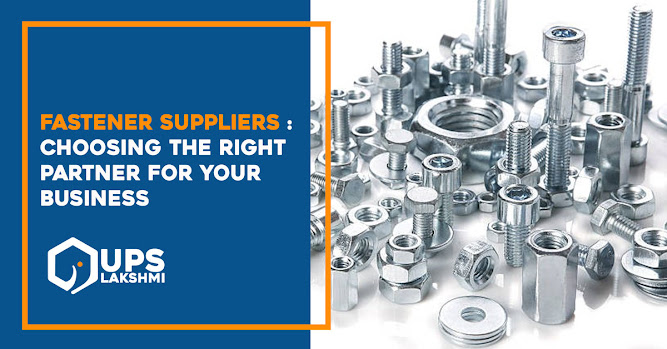Fastener Maintenance: Best Practices for Longevity and Performance
Fasteners are an essential component of various mechanical systems and structures, providing the necessary force to hold different parts together. However, they can be susceptible to wear and tear, corrosion, and other forms of damage, which can reduce their lifespan and performance. Proper fastener maintenance is critical to ensuring their longevity and performance.
Some of the best practices for fastener maintenance are-
Choose the right fastener for the job: The first step in fastener maintenance is to choose the right type of fastener for the application. The fastener's size, strength, and material should be carefully selected to meet the specific demands of the job. Using the wrong type of fastener can lead to premature failure and damage to the surrounding components.
Inspect fasteners regularly: Regular inspections are essential for identifying signs of wear and damage to fasteners. Inspect fasteners visually for corrosion, cracks, or other signs of damage. In addition, check the tightness of the fasteners regularly using a torque wrench to ensure they are still secure.
Lubricate the fasteners: Lubricating fasteners can help to prevent corrosion and reduce wear and tear. Apply a small amount of lubricant to the threads and under the head of the fastener before tightening. However, be careful not to over-lubricate, as this can cause the fastener to come loose.
Use anti-seize compound: Anti-seize compound is a lubricant that contains a special blend of ingredients that prevent metal-to-metal contact and corrosion. This compound can be used to prevent fasteners from seizing or becoming difficult to remove, making future maintenance easier.
Tighten fasteners properly: Tightening fasteners too much can cause them to strip or break, while tightening them too little can cause them to come loose. Use a torque wrench to ensure that fasteners are tightened to the correct specifications.
Replace worn or damaged fasteners: If a fastener is worn or damaged, it should be replaced immediately. Using a damaged fastener can cause the surrounding components to fail, leading to costly repairs and potential safety hazards.
Protect fasteners from corrosion: Corrosion is one of the most significant threats to the longevity of fasteners. To protect fasteners from corrosion, use fasteners made from materials that are resistant to corrosion, such as stainless steel or titanium. In addition, avoid using dissimilar metals in contact with each other, as this can cause galvanic corrosion.
Store fasteners properly: Proper storage of fasteners is essential to prevent damage from humidity, dust, or other contaminants. Keep fasteners in a dry and clean environment, such as a sealed container or drawer. Avoid storing them in places where they can come into contact with chemicals or moisture.
Use thread-locking compound: Thread-locking compound is a special adhesive that can be applied to fasteners to prevent them from coming loose due to vibration. This compound is available in different strengths, so be sure to choose the right one for the application.
Consider the environmental conditions: The environmental conditions in which fasteners are used can affect their longevity and performance. For example, exposure to high temperatures or humidity can cause fasteners to corrode or become weakened. Consider the environmental conditions when selecting the type of fastener to use and when planning maintenance schedules.
Fastener maintenance is critical to ensuring the longevity and performance of mechanical systems and structures. By following these best practices, you can help to prevent premature failure and damage to the surrounding components. Choose the right type of fastener for the job, inspect fasteners regularly, lubricate and use anti-seize compound, tighten fasteners properly, replace worn or damaged fasteners, and protect fasteners from corrosion.
Various types of premium quality fasteners are available on Universal Precision Screws (UPS) official website. Not just fasteners but studs, bolts, screws, and nuts of various kinds are also available. To check our products out, visit our website- https://www.upsind.com/




Comments
Post a Comment